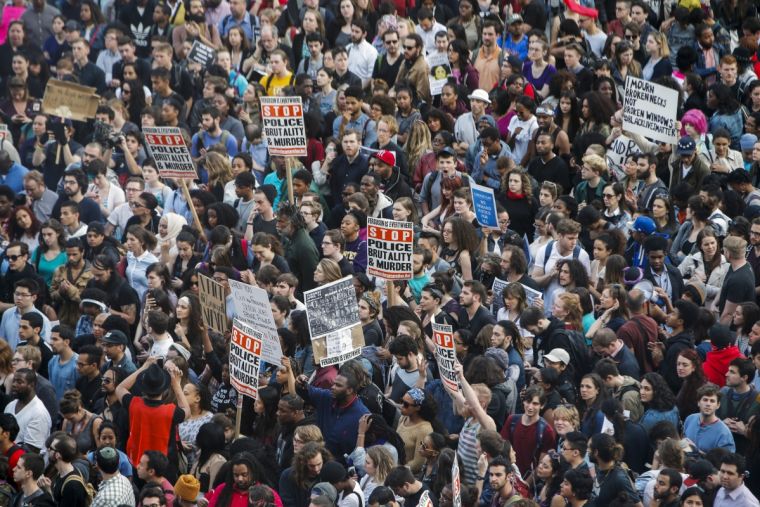The UK Church sidesteps issues of race at its peril

It's a rare occasion when my Twitter feed is unified in terms of talking points, but when news broke of the recent unrest in Baltimore following the death of Freddie Gray in police custody, the whole of my timeline was talking about it. Well, almost. I couldn't help but notice that there was a conspicuous community of Christians that I follow, usually extremely vocal when it comes to issues of injustice, who were silent on the matter and seem to be consistently silent in similar situations.
"Why the silence?" I wondered. They couldn't possibly be oblivious to what was going on. I realised, however, that what I was seeing is what happens on a wider scale in our churches. Issues of race, privilege and systematic oppression are swept under the carpet or conveniently sidestepped. While ideas of 'racial reconciliation' appear in some more progressive American Christian circles, the concept is alien on these shores. Historically America's problems with race have been more overt, but this doesn't mean that Britain doesn't have its own issues to deal with. Nevertheless, like our culture in general, we've become very good at not talking about what we find uncomfortable and ugly.
Well, the uncomfortable and the ugly is this: the Church has been complicit in systematic racist oppression throughout history. From the savagery of slavery to the brutality of colonialism, alongside weaponry, warfare and corruption, Christianity has been a tool used to subdue and rule. The wealth that built and sustained some of England's impressive cathedrals came from its involvement in the slave trade. And missionaries sent to Africa and Asia were part and parcel of Britain's quest for the domination of indigenous populations. "Why dredge up ancient history?" you may ask. But this history isn't that ancient and in some ways it's being repeated.
From the export of the prosperity gospel and right-wing evangelists meddling in foreign politics, to well-meaning missionary trip after well-meaning missionary trip to developing countries, Western Christianity's involvement with the vast non-white populations of the world continues to be problematic. This raises serious questions for people like me, young black people from church backgrounds. With information readily to hand and our general awareness increasing, many of us have wrestled with the nature of the Christian religion in practice, both historically and in its present form.
This goes beyond conversations about depicting Jesus as a blond-haired, blue-eyed Aryan – although this is a good place to start. We question our allegiance to corporate Christianity when one of its largest institutions, the Anglican Church, took nearly 200 years to publicly regret its involvement in and profits from the transatlantic slave trade. This is despite its membership numbers in sub-Saharan Africa outstripping its dwindling congregations in Britain. We wonder about our involvement with a Church that rushes to save broken black bodies abroad but does not engage when it comes to issues still faced by black communities in the West. When questions like these are downplayed or outright ignored, the conclusion is simple: this religion is not, and never was, ours.
What is at stake is the faith of a generation of young people in the African diaspora who may have been brought up in church but are turning their backs on it in growing numbers. The conversations that we need to have are hard, and they will not be satisfied by evasive quips about us all being "one in Christ". If we are truly "one body" then this is not the burden of the 'black church' alone. This problem is all of ours to deal with, the questions are all of ours to answer. Silence is not an option as it suggests complicity and acceptance. A faith that does not acknowledge its problematic history and the troubling reality in which it exists is not a faith worthy of anyone's belief. But Christianity does not have to be that. We have more opportunity than ever to address the uncomfortable facts and the ugly truths across various platforms and it is because of these vital conversations that I, along with others, can still comfortably call myself a Christian.
Though not the easiest task, it is possible to dismantle the cultural distortions and historical hangovers that cast shadows over the Christian faith and still leave the gospel in tact. Let us not forget that it is by the power of the gospel alone that this radical message spread in the beginning from Jerusalem throughout the Middle East and to Africa and Asia – all done without an army, artillery, political or economic agenda.
Jendella is a writer, photographer and filmmaker based in London. Her work has appeared in The Guardian and also been exhibited internationally. She can be found on Twitter – @JENDELLA – and also at www.jendella.co.uk.











